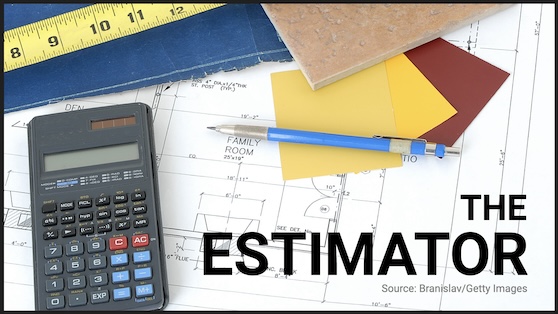
Articles
Features
Careers
The Estimator
Materials, labour and associated risks – The Estimator, Winter 2023
July 5, 2023 | By Dan Beresford and John F. Wiesel
To bid or not to bid

July 5, 2023 – As an electrical contractor, you need to bid projects to win work and grow your company. But should you bid on every project that comes your way?
Doing a takeoff, completing the estimate and submitting the bid according to the specs, drawings, and bid documents takes time. As such, you want to be reasonably sure of a potential payoff before you invest your time in the process… but how can you be reasonably sure?
When evaluating whether to bid or not to bid, consider the following:
1. When is the bid due?
Do you have enough time to review the entire bid package and complete a proper takeoff? Rushed, sloppy takeoffs will come back to bite you.
2. Is the bid package complete?
Are the drawings missing any information, and are the specs clear? If not, you will need to request more information to complete the bid properly (see also Point #1).
3. Can you do the work?
Consider whether you are you able to finance the project. Also, will you have the manpower and supervision required for the job when the job requires them? The job’s planned timeline may simply not work with your current workload and schedule.
Are there additional documents that are required for bid submittal, such as bid bonds, consent of surety, extra liability insurance, WCB documents, etc.? If yes, are you able to secure everything that is required and still submit a proper bid in the time allotted (see also Point #1)?
4. Who is the client?
Past experiences with a client should help you decide whether to bid. You will sleep a lot better at night when you prioritize clients who pay promptly over those you always have to chase for payments and holdback. In case you have not worked with this client before, what kind of reputation do they have? Find out.
5. Who is your competition?
Take a look at the bidding landscape and try to determine how many others are bidding on the same opportunity. From that lot, do you see competitors who are hungrier than you… do you see any or many low-ballers? If so, you may be better off to just walk away and focus your efforts on bids where you are reasonably sure of a potential payoff.
6. Ties that bind
Is the project connected to specific manufacturers, sales agents or distributors, with existing or specified products? If so, do you have a good relationship with them? More importantly, does your competition have a better relationship with them? When your supply chain relationships are weak on a particular project, your bid submission will pale in comparison to your competitors’ bids.
7. Need and wants
Wouldn’t it be wonderful if we only ever had to bid on the work we wanted rather than needed? The reality is that we may have to bid on work so that we can keep our crew employed, or to keep cash flowing through the company. But there are also times we choose to bid because we want to work with a particular client, and hope to establish a long-term prosperous relationship with them.
There may be other factors that influence your decision whether to bid on a project. Never forget that you are in business to generate profit and grow your company; failing to consider the factors above may very well cost you both.
John F. Wiesel is the president of Suderman Estimating Systems Inc., and has been estimating and teaching estimating since the early 1980s. Dan Beresford served as an electrician in the Canadian Navy, then worked in various roles in the electrical sector before joining Suderman.
You’ll find all Back Issues of Electrical Business Magazine in our Digital Archive.
Print this page
